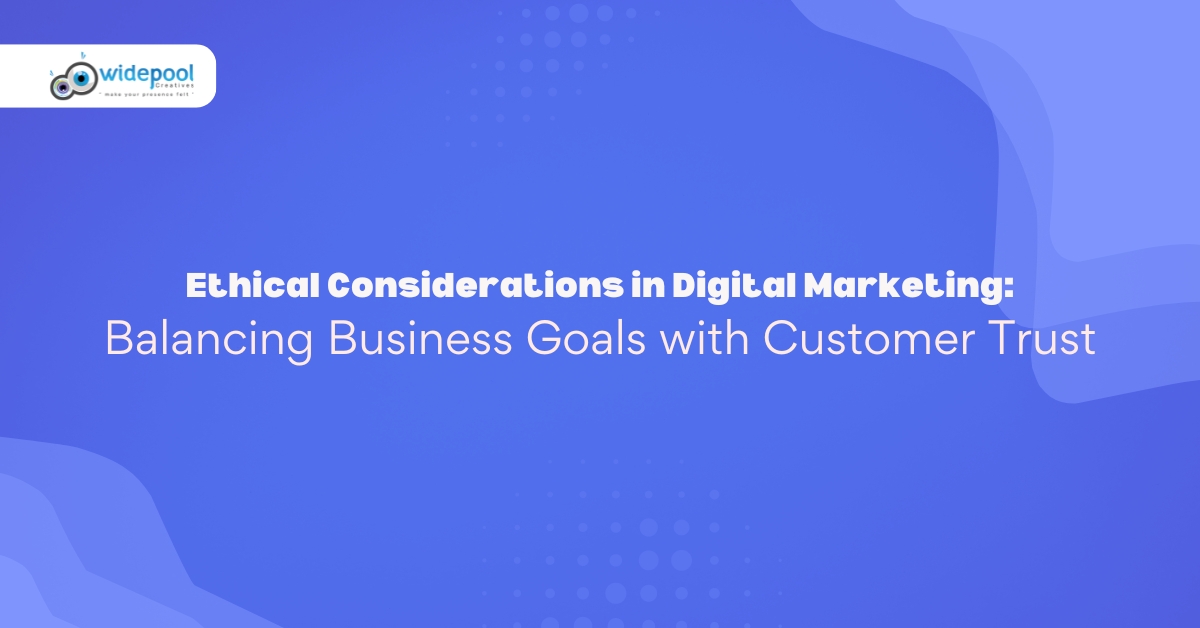The digital tapestry has revolutionised online marketing. This is giving brands unprecedented access to consumers. However, it is well known that with great power comes great responsibilities! The very tools that catalyse targeted advertising & brand engagement can raise certain ethical concerns. Let us look at some ethical considerations in digital marketing.
Ethical Considerations in Digital Marketing
Finding the balance between reaching business goals & holding customer trust is like a balancing act of modern-day digital marketing endeavours.
- Data Protection: This happens to be one of the biggest ethical considerations is digital marketing. Users get valuable info but at a big cost. Their data & privacy is bargained. Customers leave their digital footprints everywhere when they go online. Marketers collect this info for tailoring ads & content that view. While this individualisation could be beneficial in one way, the line between convenience & invasiveness rapidly blurs.
- Transparency: Transparency is pivotal when it comes to ethics! Brands need to be clear about what data they are collecting, how they are using it, and with whom they are sharing it. Effective opt-in practices & clear privacy policies are fundamental for establishing trust. Furthermore, respecting users’ preferences involving data collection and granting simple opt-out options exhibit your dedication to authorising users.
- Misleading Ads: One more ethical obstacle is launching misleading ads. Misleading images, click-bait headlines, & hidden fees can eat away users’ trust. Online marketers should focus on genuineness & transparency in their messages. Preventing hyperbolic claims creates trust and promotes long-lasting relationships with consumers.
- SMM: Social media marketing also comes with ethical predicaments. For instance, influencer marketing could be a strong tool, but there is a thin line between authentic endorsements & paid ads. Disclosing sponsored content is vital to maintain transparency. Furthermore, marketing unrealistic beauty ideals & unhealthy lifestyles can have detrimental consequences. Online marketers must prioritize associations with genuine & responsible influencers.
- Manipulation: Sometimes, digital marketers manipulate consumers in various unethical ways. Tactics like dark patterns can trick users into taking unintended actions. They also take advantage of certain psychological predispositions & prejudices of users for their short-term gains. Similarly, selling to users by playing on their fears & vulnerabilities creates distrust. Building trust calls for ethical digital marketing practices. Marketers must respect users’ autonomy and they should refrain from using such manipulative tactics.
Balancing Business Goals with Consumer Trust
So, how to walk this ethical tightrope? Below mentioned are some key takeaways for digital marketers:
- Respect users’ choices
- Strive for genuineness
- Steer clear of manipulation
- Concentrate on transparency
- Promote responsible influencer marketing
Prioritizing ethical considerations in digital marketing helps companies form stronger relationships with customers. Never forget that trust happens to be a 2-way street. When users feel respected & valued, they tend to become loyal customers & even brand advocates. After all, ethical digital marketing is not only the right thing to do, but also good for your business. Choose Widepool Creatives for your digital marketing endeavours, and you will never repent!

